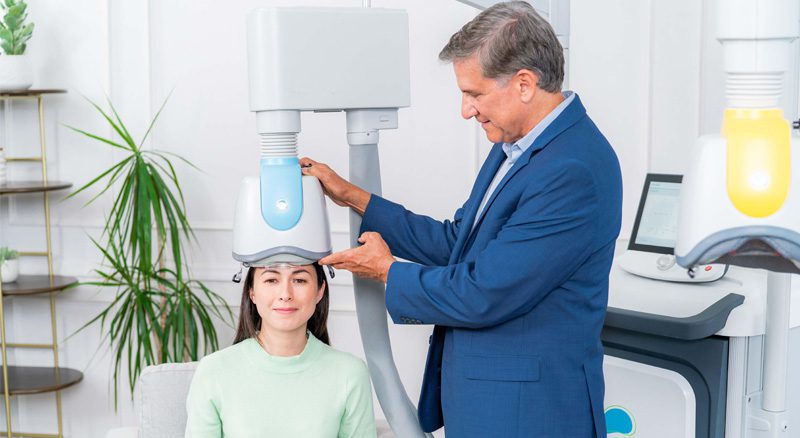Transcranial Magnetic Stimulation (TMS) therapy is a relatively new treatment option for individuals suffering from depression. This non-invasive procedure utilizes a magnetic field to stimulate nerve cells in the brain, helping to reduce symptoms of depression. Transcranial Magnetic Stimulation for Depression is a relatively safe and effective treatment option for people with depression.

Image Source: Google
The primary benefit of therapy is that it is non-invasive, requires no anesthesia, and is generally well tolerated. Unlike more traditional treatments such as electroconvulsive therapy (ECT), TMS does not involve any memory loss or other cognitive impairment.
This therapy has also been found to be effective in reducing symptoms of depression in patients who have responded to other treatments. It is also an appealing option for those who wish to avoid the use of antidepressant medication, as it does not require a daily regimen of pills.
Furthermore, TMS has been found to be a safe and effective treatment option for individuals with co-occurring disorders such as bipolar disorder, schizophrenia, or anxiety. Studies have shown that the use of TMS in combination with other treatments can increase the effectiveness of the overall treatment plan.
Finally, TMS therapy has been shown to be a cost-effective treatment option for those suffering from depression. Studies have found that the use of TMS can reduce the need for medication and doctor visits, resulting in significant cost savings over time.
